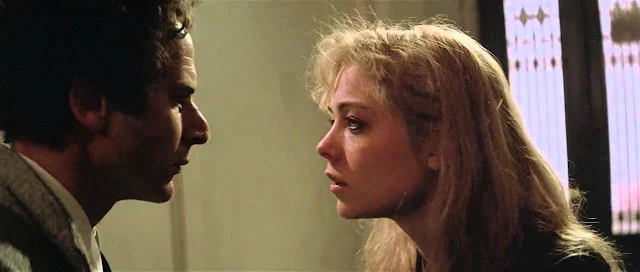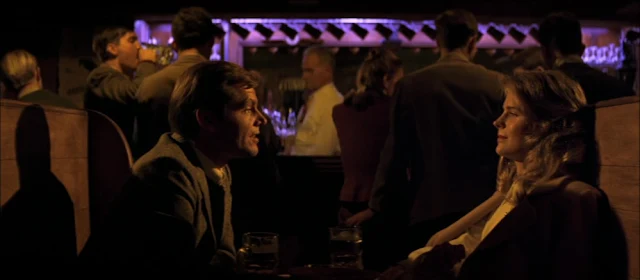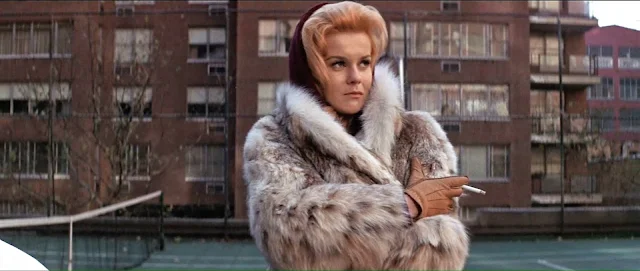A blog formerly known as Bookishness / By Charles Matthews
"Dazzled by so many and such marvelous inventions, the people of Macondo ... became indignant over the living images that the prosperous merchant Bruno Crespi projected in the theater with the lion-head ticket windows, for a character who had died and was buried in one film and for whose misfortune tears had been shed would reappear alive and transformed into an Arab in the next one. The audience, who had paid two cents apiece to share the difficulties of the actors, would not tolerate that outlandish fraud and they broke up the seats. The mayor, at the urging of Bruno Crespi, explained in a proclamation that the cinema was a machine of illusions that did not merit the emotional outbursts of the audience. With that discouraging explanation many ... decided not to return to the movies, considering that they already had too many troubles of their own to weep over the acted-out misfortunes of imaginary beings."--Gabriel García Márquez, One Hundred Years of Solitude
Search This Blog
Showing posts with label Art Garfunkel. Show all posts
Showing posts with label Art Garfunkel. Show all posts
Thursday, October 24, 2019
Bad Timing (Nicolas Roeg, 1980)
Bad Timing (Nicolas Roeg, 1980)
Cast: Art Garfunkel, Theresa Russell, Harvey Keitel, Denholm Elliott, Daniel Massey, Dana Gillespie, William Hootkins, Eugene Lipinski, George Roubicek, Stefan Gryff. Screenplay: Yale Udoff. Cinematography: Anthony B. Richmond. Art direction: David Brockhurst. Film editing: Tony Lawson. Music: Richard Hartley.
The jigsaw-puzzle narrative of Bad Timing makes for a film whose parts are more interesting than its whole. It never settles down to be what it is by nature, a psychosexual thriller, but loses itself in a lot of loose ends and red herrings. Which is not to say that it isn't a more interesting film than a lot from its era: I'd rather watch it again than, say, the year's Oscar best picture, Robert Redford's Ordinary People. The people in Bad Timing are anything but ordinary. Art Garfunkel, hardly a conventional leading man, plays Alex Linden, a "research psychoanalyst" who gets involved with a seductive young woman, Milena Flaherty, played with her usual sensuality by Theresa Russell. Linden finds out that Milena is married to, but separated from, an older man who lives in Czechoslovakia, Stefan Vognic (Denholm Elliott) -- whom Linden, whose sideline involves consulting work for American forces stationed in Vienna, is asked to investigate. You can sense at this point that the plot is going to wander off into eddies of intrigue that we can never quite bring into focus. But the precipitating event, as far as any central plot is concerned, is Milena's attempt at suicide, which brings an Austrian police detective named Netusil (the oddly cast but also oddly effective Harvey Keitel) into the picture. When Linden, who reported the suicide attempt, goes taciturn and evasive under Netusil's attempts to interview him, the detective grows more determined to find out about the relationship between Linden and Milena, which as far as the film is concerned only spurs more and more flashbacks. The evident determination of director Nicolas Roeg and screenwriter Yale Udoff to avoid anything like conventional thriller clichés while at the same time using them as a kind of cinematic subtext produces a film that's been either damned as a maddening muddle or praised as a provocative exploration of sexual obsession. To my mind it's a fascinating botch at best.
Tuesday, October 1, 2019
Carnal Knowledge (Mike Nichols, 1971)
Carnal Knowledge (Mike Nichols, 1971)
Cast: Jack Nicholson, Ann-Margret, Art Garfunkel, Candice Bergen, Rita Moreno, Cynthia O'Neal, Carol Kane. Screenplay: Jules Feiffer. Cinematography: Giuseppe Rotunno. Production design: Richard Sylbert. Film editing: Sam O'Steen.
Carnal Knowledge begins as a light comedy of manners set in the late 1940s, when college students were supposedly less casual and more poorly informed about sex. Jonathan (Jack Nicholson), who claims to be more sexually experienced than his Amherst roommate, Sandy (Art Garfunkel), gives Sandy some advice on how to approach Smith College student Susan (Candice Bergen) at a mixer. The scene has some of the keen ear for awkward attempts at communication found in screenwriter Jules Feiffer's cartoons and in director Mike Nichols's comedy routines with Elaine May. Eventually, Sandy and Susan get together, with Jonathan still coaching Sandy on sex, until Jonathan himself makes his own moves -- unknown to Sandy -- on Susan. He succeeds, in an excruciating scene in which Susan's confusion about the loss of her virginity plays across her face, partly obscured by the grunting Jonathan on top of her. And from then the film becomes increasingly sour, as the years pass and the misogynistic Jonathan continues to meddle in Sandy's life but also makes a mess of his own relationships with women. He takes up with Bobbie, a model played by Ann-Margret, for what begins as a passionate fling and ends in misery. By the end of the film he is being serviced by Louise (Rita Moreno), a prostitute whom he hires to perform a routine -- and abuses when she deviates from it -- designed to give him an erection. It's a sad, rather hopeless film that despite fine performances from all the actors never quite convinces us that its characters are anything but puppets of the writer and director. Jonathan and Sandy seem incapable of change and growth. Something makes me think that Carnal Knowledge would have been a better film if it had been told from the women's point of view, that it would have made a more telling point about the male ego and about the great gulf between the sexes if we had seen Jonathan and Sandy through Susan and Bobbie's eyes. We get glimpses of that, but Susan disappears from the film after she marries Sandy and he, egged on by Jonathan, drifts into mid-life affairs. Bobbie's entrapment into Jonathan's world leads to a failed suicide attempt, after which she, too, vanishes from the story. Feiffer and Nichols never make it clear whether their film is a satire on sex in modern society or just a particularly bleak story about unhappy people.
Subscribe to:
Comments (Atom)




































